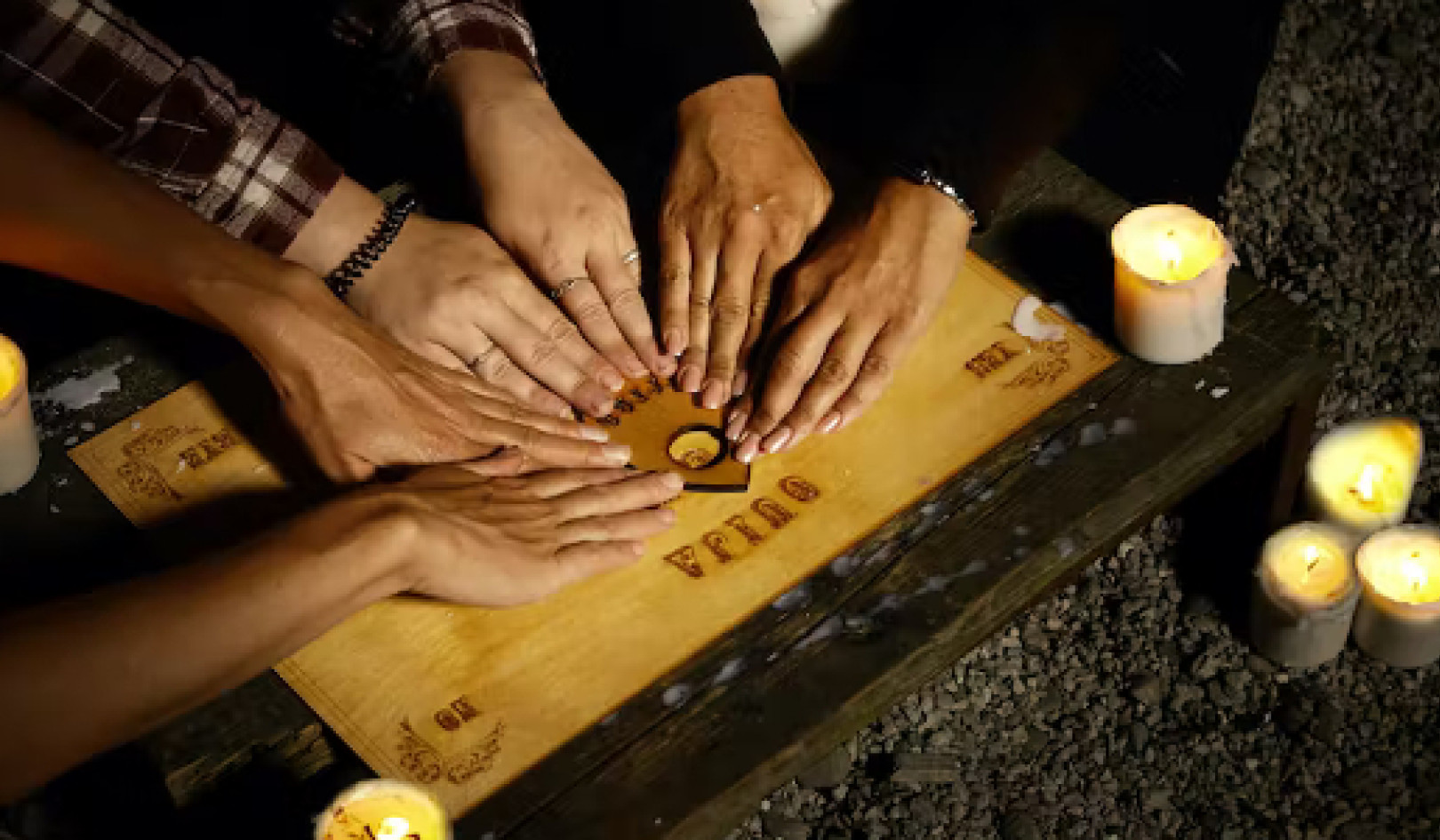
Every religious discipline teaches it. Every culture values it. Self-control or self-mastery is a key to power.
Note: The words “strong” and “strength” are used in some of these quotations because English language dictionaries name the words strength and power as synonyms. As addressed in these pages and in Charles Fillmore’s teaching, strength and power are each distinct spiritual abilities.
Who is strong? He who controls his passions. (Judaism; Mishnah)
The strong man is not the good wrestler; the strong man is only he who controls himself when he is angry. (Islam; Hadith of Bukhari and Muslim)
He who conquers others has physical strength; he who conquers himself is strong. (Taoism; Tao Te Ching, Star, Two Suns Rising, 33)
Though one should conquer a million men on the battlefield, yet he, indeed, is the noblest victor who has conquered himself. (Buddhism; Dhammapada, 103)
With the conquest of my mind, I have conquered the whole world. (Sikhism; World Scripture, 522)
That man is disciplined and happy who can prevail over the turmoil that springs from desire and anger, here on earth. (Hinduism; Bhagavad Gita, 5:23)
For God did not give us a spirit of cowardice, but rather a spirit of power and of love and of self-discipline. (Christianity; 2 Timothy 1:7)
Being in Integrity with Our Infinite Self
Self-mastery is our capacity to guide our thoughts, words, and actions in integrity with our Infinite Self, instead of reacting from only-human, or egoic, impulses. We know ourselves. We respect ourselves, and we respect others.
We do not fool ourselves but tell ourselves the truth. We seek to understand the beliefs and attitudes underlying our impulsive emotions, so that we can correct misguided beliefs and change our attitudes, knowing our emotions will settle as we do so.
Self-mastery is a claiming of our wholeness and self- determination. When my children were toddlers, I swapped babysitting with another mom. One day, her child, unhappy with me because I did not allow him to do everything he wanted, cried out, “You are not the boss of me!”
After I got over feeling stunned, I thought to myself, he is so right! I hope he knows this as he grows up. No one should be the boss of us, and nothing should have power over us. Yet in our misunderstanding of our rightful power ability, we give our power over to other people; we are controlled by our compulsions; and we operate from fixed attitudes. All of these are addressed by cultivating our power ability.
Teaching by Example?
Early in my work of church ministry, an iridologist was scheduled to offer a workshop on a Sunday afternoon at the Unity church I was serving. The church was in transition, as was I, having been an associate to the minister who had recently departed for another church. My position was tenuous. I was the de facto spiritual leader with little training or experience.
Into this scenario entered an iridologist eager to demonstrate his accuracy in reading the eyes to diagnose conditions of consciousness—and then in his workshop to teach his remedies. I knew nothing of iridology, or this man, when he approached me minutes ahead of the start of the first of two Sunday services that I was officiating. Casually, at the coffee station in the reception room, he looked into my eyes and told me, “You are insecure, and nervous. I could help you with that.”
I became speechless. I bolted out of the room and went to my office to attempt to compose myself. I fumbled through the first service, insecure and nervous. Afterward, the iridologist came and knocked on my office door, offering to teach me by example how to deliver a Sunday message that connects with people—obviously, I had done a poor job of it. In my deflated state, I agreed!
Following the second service, a few lay leaders sensed something had gone wrong. After all, I was scheduled to deliver the message at both services. Protective of me, the lay leaders accosted the iridologist, who later apologized to me for being insensitive. He had only wanted to help.
When You Respect Yourself, Others Will Respect You
This painful experience was revealing to me. First, the uncomfortable truth was that he had nailed me—he saw my insecurity and nervousness; if be could, so could others. I was a public mess, I believed! I told my husband Giles. In his wisdom, Giles advised, “When you respect yourself, others will respect you.” Bingo! I began to see that calling myself a victim of another person’s bullying, or domination, only meant that I had given over my power to him.
I earnestly began to study self-mastery, over time learning to respect myself, to trust myself, and to be self-determining. I learned there is a difference between aggressiveness, the taming of which is central to the classic definition of self-mastery; and assertiveness, which is a healthy aspect of consciousness. I learned to assert myself deliberately and positively during uncomfortable interactions with others.
Some might say there are higher, more spiritual applications of our power ability than in minor interpersonal incidents. I believe, however, that all healthy expressions of our power ability are spiritual. Read advice columns such as “Dear Abby” or “Carolyn Hax” in your local newspaper and you’ll likely agree that most of humanity’s interpersonal struggles arise when we feel out of control, which we often translate as being under someone else’s control. Some examples of classic power struggles might include the following:
You reside in the tropics. Relatives from the north like to visit. You routinely inconvenience yourself when relatives make vacation plans in your area, expecting you to host them in your home. You allow one relative to stay for a month. Another family offers to pay for nothing during their stay, accepting your hospitality, eating your food, and driving your car. Despite your negative feelings, when they call to schedule next year’s vacation, you say yes! You can’t help it— they’re family.
A friend and you regularly schedule time together at local restaurants. Your friend determines which restaurant every time, and you go along even when you don’t care for that restaurant’s cuisine or the price range is beyond your means.
Your work involves collaboration with others. A coworker arrives late for meetings, contributes almost nothing to the project, takes credit for the key idea that you bring to the table, and is the first one to accept praise when the assignment has been accomplished. You can’t correct the coworker because no one else seems to care, and you can’t complain to the boss because you might appear petty.
Any or all of these situations would be reasonable and acceptable if you genuinely felt hospitable, acquiescent, and gracious. Implied in each of these accounts, however, is the sense that you feel disgruntled but unable to assert yourself. Others are in control. Others control you.
The Importance of Cultivating Self-Mastery
Why is it important to cultivate self-mastery in these seemingly small matters? I believe that everyday power struggles lead to rifts, family feuds, and wars! Everyday power struggles lead to self-degradation and deflation of self-worth, which lead to your dimming your inner light and withdrawing from being the blessing you are here on earth to be.
If you are the unhappy host, Abby and Carolyn might advise you to become proactive with your family. Let them know they are welcome for up to four days at a time; send them lists of local hotels and rental-car companies, etc.; and be truthful if someone’s scheduled visit interferes with your already-scheduled plans. If you are the friend who never expresses your opinion, the advice columnists might urge you to find your voice or to take the lead and suggest your preference. If you are the frustrated coworker, advisors might recommend you begin with a one-on-one, heart-to-heart visit with the underperforming team member.
Any remedies for situations of perceived powerlessness involve claiming our power ability. Consider this: Whenever we have an issue with another person, ignoring it or sidestepping it is an act of disrespect. We disrespect the other person by telling ourselves they couldn’t handle our honest feedback. Telling ourselves “It’s not that big a deal” or “I’ll get over it,” we disrespect ourselves.
Cultivating self-mastery along with the courage of our strength ability, we become self-knowing, transparent, and confident—and we sleep better at night.
Have You Given Your Power Away to Compulsive Behaviors?
Another expression of self-mastery is overcoming compulsive behaviors. I remember at the age of twenty-one, having smoked cigarettes for four years, I was driving to work one winter morning. Windows were up, heat was on. Cigarette smoke was swirling in such a thick cloud that I could hardly see through the windshield. I was coughing and having trouble breathing.
In a flash of awareness, I realized, Cigarettes have taken control! I don’t have cigarettes. Cigarettes have me! I extinguished my lit cigarette and threw the rest of the pack out the car window.
Jesus said, “Whatever you bind on earth will be bound in heaven; and whatever you loose on earth shall be loosed in heaven” (Matthew 18:18). I find two helpful ways of interpreting this master teaching. First, I think of earth as the microcosm and heaven as the macrocosm.
Quantum physics is proving the holographic nature of life, meaning that all parts are contained in each part. An action taken in one small part affects the whole. This is why master teachers of all ages have advised that if we were to commit to one modest practice toward conscious living, we—in entirety—would awaken.
Another way of interpreting Jesus’ profound statement is to understand earth means you, your body and your circumstances; heaven means your spirit and the spirit in unity with all, or oneness. Charles Fillmore taught that when you bind or control “the appetites, passions, and emotions in the body [earth],” you simultaneously establish your power in subtle, vibrational, spiritual matters; thereby, “you restore equilibrium between heaven and earth, or Spirit and matter” (The Twelve Powers of Man, 69).
Releasing Our Inner Power of Self-Mastery
We give our power over to false beliefs when we claim “my diabetes” or “my allergies.” We can never heal these fleeting conditions by believing them to be permanent. Uncovering our fixed attitudes about life and, especially, about ourselves, releases our inner power of self-mastery. Unity leader Eric Butterworth wrote:
We also hold fixed false attitudes (graven images) about ourselves—I am weak, not as smart as . . . worthless, unlovable, incapable . . . You do not need a new self-image. What you need is to let go of the graven image of yourself that you have carved into the fabric of your subconscious mind, and to know and release your own divine image. (Butterworth, Breaking the Ten Commandments, 25–26)
Copyright 2015 by Linda Martella-Whitsett.
Reprinted with permission of Hampton Roads Publishing Co.
Dist by Red Wheel Weiser, www.redwheelweiser.com
Article Source
 Divine Audacity: Dare to Be the Light of the World
Divine Audacity: Dare to Be the Light of the World
by Linda Martella-Whitsett.
Click here for more info and/or to order this book.
About the Author
 Linda Martella-Whitsett, winner of The 2011 Best Spiritual Author competition, is an inspiring, respected Unity minister and spiritual teacher. Linda's message about our Divine Identity inspires people across cultures and faith traditions to meet life's circumstances with spiritual maturity. Linda is the senior minister at Unity Church of San Antonio and a mentor for emerging leaders in New Thought. Visit her website at www.ur-divine.com/
Linda Martella-Whitsett, winner of The 2011 Best Spiritual Author competition, is an inspiring, respected Unity minister and spiritual teacher. Linda's message about our Divine Identity inspires people across cultures and faith traditions to meet life's circumstances with spiritual maturity. Linda is the senior minister at Unity Church of San Antonio and a mentor for emerging leaders in New Thought. Visit her website at www.ur-divine.com/
Watch a video: Our Divine Nature -- with Rev. Linda Martella-Whitsett




























